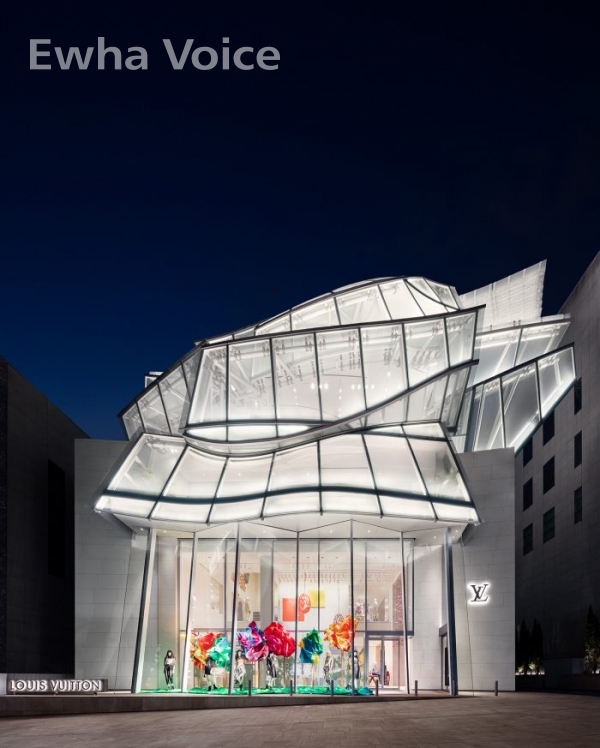
This March, Italian high-end luxury brand Gucci launched its third global restaurant outpost in Seoul. French luxury brand Louis Vuitton Malletier opened its first-ever pop-up restaurant in Seoul last May. Both restaurants run by top designer brands have achieved fierce popularity, hinted by the high competition in booking.
This phenomenon does not seem to be completely new, as the latest fashion brands such as A.P.C. and Maison Kitsuné have previously opened cafés in popular spots of Seoul. Luxury watch brands including IWC Schaffhausen and Breitling have presented premium drinks to be sold at their stores, with Breitling also opening its Hannam Townhouse including a café and kitchen.
Lim Ji Yun, Director of Research at Samsung Fashion Institute, describes this phenomenon based on the concept that the essence of fashion is to express individuals.
“People have moved on to express themselves not only by ‘what they wear’ but also by ‘what they eat and drink,’” Lim stated. “This has caused brands to sell their brands themselves rather than just the products, intervening deeper into the lifestyles of consumers.”
Lim described the F&B industry as playing a significant role in providing brand experience. Customers have now become able to engage in the brand itself with more experience by consuming the brand’s restaurants or cafés.
“People accept both ‘wearing DIOR clothes’ and ‘having a cup of latte at Café DIOR’ as equal methods of consuming the brand now,” Lim exemplified. “Shops with menus and interior space embracing the brand identity deliver visual experience and allow consumers to feel the brand in a richer way.”
The concept of delivering exclusive experience for solid and holistic brand identity can be seen in F&B shops of different high-end fashion brands.
Gucci Osteria Seoul’s official press release described the newly opening restaurant as sharing the same values and principles of the original in Italy under one Gucci Osteria umbrella.
“There is an invisible thread that runs through each of the Gucci Osteria globally,” explained Massimo Bottura, Italian restaurateur and founder of Gucci Osteria.
The official press release of Pierre Sang at Louis Vuitton described the restaurant as delivering a distinctive and elevated dining experience by presenting menus highlighting French cuisine with a Korean twist.
According to the survey conducted by Ewha Voice from Aug. 13 to Aug. 20, among 80 people in their twenties, 13 percent of the respondents have visited F&B shops by fashion brands. Despite the low percentage of actual consumers, 52 percent of the respondents answered being exposed to social media posts or news articles regarding F&B shops by fashion brands.
“It was not only because I enjoyed going to new cafés, but also because I felt like experiencing pricey high-end brands indirectly,” replied one respondent from the survey, who had multiple experience in visiting F&B shops by fashion brands, including Café A.P.C. and Café Madang located in Maison Hermès Dosan Park. “I was also satisfied with the premium drinks and pretty merchandise displayed in the shops.”
Another respondent of the survey, who replied having no experience of visiting F&B shops by fashion brands, expressed her appreciation of popularity on the trend.
“I frequently see recommended posts on different social media about high-end brand cafés,” she said. “I also have many friends who have been to those restaurants and cafés, and they tend to enjoy sharing their experience on social media too.”
Lim emphasized that high-end fashion brands are recently targeting young consumers, who tend to flaunt their individual and differentiated styles. She also explained that recent consumers value actual experience as well as sharing and spreading it through social media.
“Fashion brands are recently widening their fields, such as tableware, stationery, furniture, and even pet supplies,” Lim explained. “The fashion industry, in general, is also experiencing change – increased indoor-based activity due to COVID-19 has shifted the established order of differentiating clothing, and the raised awareness regarding environmental problems has developed the sustainable fashion industry.”

